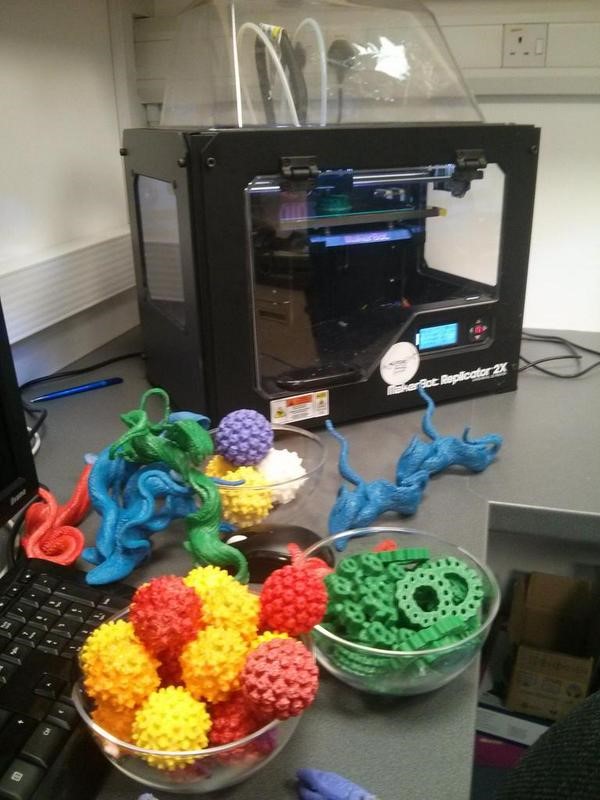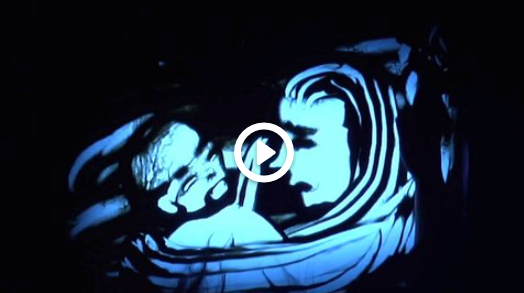15 Inspiring Scientists Receive Passion in Science Awards™
IPSWICH, Mass., Oct. 13, 2014 – Launching a global initiative to treat and prevent diseases affecting the world’s poorest billion people is not the typical scientist’s day job. Or is it?
“It’s incredibly inspiring how many scientists step outside the lab to do brilliant, creative things in the arts or for humanitarian causes,” says Peter Jay Hotez, the Dean of the National School of Tropical Medicine at Baylor College of Medicine, Texas Children’s Hospital Endowed Chair of Tropical Pediatrics, and President of the Sabin Vaccine Institute.
Hotez is an inspiration himself, developing new vaccines for neglected tropical diseases – the major diseases of the poor, while simultaneously working to provide access to essential medicines for the “bottom billion” affected by these conditions through two organizations he helped found: the Global Network for Neglected Tropical Diseases and a vaccine development partnership between the Sabin Vaccine Institute and Texas Children’s Hospital.
He is one of the 15 recipients of the “Passion in Science” awards, funded by New England Biolabs (NEB®), which recognizes scientists for their inspirational work that crosses into the arts, humanitarian service, environmental stewardship and scientific leadership.
“We are very excited about the Passion in Science Awards. What better way to celebrate NEB’s 40th anniversary than to celebrate our customers who share similar values to our own,” states Don Comb, founder of New England Biolabs.
“I’m continually humbled and motivated by what other scientists dare to dream,” says Sir Richard Roberts, who shared the Nobel Prize in Physiology or Medicine for the discovery of “split” genes, and is currently the Chief Scientific Officer at NEB. “Seeing the work of Peter Hotez and other Passion in Science awardees, such as Karl Booksh, who works with disabled students to foster a love of STEM subjects, provides a stirring reminder of the impact that scientists can have when they choose to help others.”
The Passion in Science awardees, selected from more than 600 candidates, represent a diverse set of talents and contributions to society. Awardees include:
- Massachusetts Institute of Technology synthetic biologist Tal Danino, who tessellated cancer cells and bacteria in collaboration with Brazilian artist Vik Muniz to raise money for research (see image 1);
- Oxford Brookes University electron microscopist Louise Hughes, whose 3-D printed models of viruses and cells brings the microscopic world to the visually impaired (see image 2);
- Xiamen University Professor Tonni Kurniawan, whose bacteria-based composting device is reducing health hazards and generating extra income for people in Indonesia; and
- Baylor University Professor Lori Baker, who risks her personal safety to visit migrants’ graves along the U.S.–Mexico border, test DNA, and use the results to bring closure to the migrants’ families.
“Immense possibilities for good lie within each of us. As scientists, we often have unique opportunities to apply what we know to shine a light on local and global issues. We only need to find the energy and courage to make a difference,” says Paul McDonald, a scientist at the Virginia Tech Carilion Research Institute who received a Passion in Science award for his research and policy recommendations to reduce incidents of suicide in the Army.
The Passion in Science award also recognizes contributions from younger scientists, including this TED Talk by Shelly Xie, now a medical student at the University of Texas Southwestern Medical Center. Shelly uses sand shadow art to convey the experiences of a mother and daughter infected with the parasitic disease schistosomiasis (see image 3).
"Emotions swell up when watching her performance. She is a shining example of the great potential of the next generation of scientists,” says Florida International University Professor Kalai Mathee, who received a Passion in Science Award for her lab’s research into antibiotic resistance to improve the quality of life for children and adults with cystic fibrosis.
“Young scientists reaffirm my commitment to research and teaching. They are the reasons why I look forward to every day,” says Mathee. More than 100 scientists, from high schoolers to visiting professors, have passed through the Mathee Lab for 65 Roses. Her lab is named after a touching mondegreen by a 5-year old boy with cystic fibrosis, who heard “cystic fibrosis” as “65 roses”.
The awards and accompanying charitable donations were funded by New England Biolabs, a molecular biology reagents company. NEB maintains a strong basic research program, which includes laboratories focused on neglected tropical diseases caused by filarial parasites.
The full list of awardees follows:
Category: Arts and Creativity
- Shelly Xie, UT Southwestern Medical Center, Dallas, TX; educating about neglected tropical diseases through evocative sand art performances;
- Tal Danino, MIT; micropatterning of cancer cells and bacteria with artist Vik Muniz to raise money for oncology research;
- Alia Qatarneh, Harvard University; rapping about science to engage young scientists-to-be;
- Louise Hughes, Oxford Brookes University, United Kingdom; generating 3-D printed models from electron microscopy to help the visually impaired experience the microscopic world.
- Andrew Markley, University of Wisconsin Madison; curbing Styrofoam pollution by founding a reuse and recycling program at the University of Wisconsin, Madison, and replicating it at two other universities;
- Tonni Kurniawan, Xiamen University, Xiamen, PR China; improving the Takakura Home Composting method to reduce health hazards to and increase income of residents in Indonesia and other equatorial countries.
- Karl Booksh, University of Delaware; leading a mentorship program for students with disabilities to encourage and open up careers in science, technology, engineering, and mathematics (STEM);
- Paul McDonald, Virginia Tech Carilion Research Institute; analyzing trends of high-risk behaviors and changing Army-wide policies to increase awareness, identification, and response to at-risk Soldiers as part of the Army Suicide Prevention Taskforce;
- Lori Baker, Baylor University, Waco, TX; risking her personal safety to visit migrants’ graves along the U.S.–Mexico border, test DNA, and use the results to bring closure to their families;
- Peter Jay Hotez, Baylor College of Medicine, Houston, TX; helping to establish the modern framework of neglected tropical diseases and working relentlessly with governments, industry, and academics to develop new vaccines and raise awareness resources for vaccines and treatments.
- Ite Laird-Offringa, Norris Cancer Center, University of Southern California; fighting lung cancer through novel tools that leverage patients’ immune response for early detection and treatment;
- Jason Furrer, University of Missouri; inspiring undergrads to join real scientific laboratory research, regardless of initial skill level, that aims to help people with Crohn’s disease;
- Laurie Doering, McMaster University, Ontario Canada; researching astrocyte-based factors that may be able to treat neurons of people with Fragile X and autism;
- Kalai Mathee, Florida International University; mentoring trainees and researching bacterial (Pseudomonas aeruginosa) antibiotic resistance that can ultimately help children and adults with cystic fibrosis to have a longer and better quality of life;
- Whitney Hagins, Massachusetts Biotechnology Education, Cambridge, MA; providing equipment grants, teacher professional development, and co-teaching programs to support first-rate high school science education.
About New England Biolabs
Established in the mid 1970's, New England Biolabs, Inc. is the industry leader in the discovery and production of enzymes for molecular biology applications and now offers the largest selection of recombinant and native enzymes for genomic research. NEB continues to expand its product offerings into areas related to PCR, gene expression, sample preparation for next generation sequencing, cellular analysis, epigenetics and RNA analysis. Additionally, NEB is focused on strengthening alliances that enable new technologies to reach key market sectors. New England Biolabs is a privately held company, headquartered in Ipswich, MA, and has extensive worldwide distribution through a network of exclusive distributors, agents and seven subsidiaries located in Canada, China, France, Germany, Japan, Singapore and the UK.
For more information about New England Biolabs visit www.neb.com.



Images 1 to 3: Left: Tal Danino at MIT developed methods to micropattern cervical cancer cells (HeLa) and collaborated with artist Vik Muniz to create art that raises money for research. Middle: Electronic microscopist Louise Hughes at Oxford Brookes University prints 3-D models of viruses, cells, and microorganisms so the visually impaired can experience microscopy. Right: In this TED Talk, medical student Shelly Xie at UT Southwestern Medical Center uses her hands to shape sand and convey the hardship of families in developing nations who battle parasitic infections.
10/13/2014

